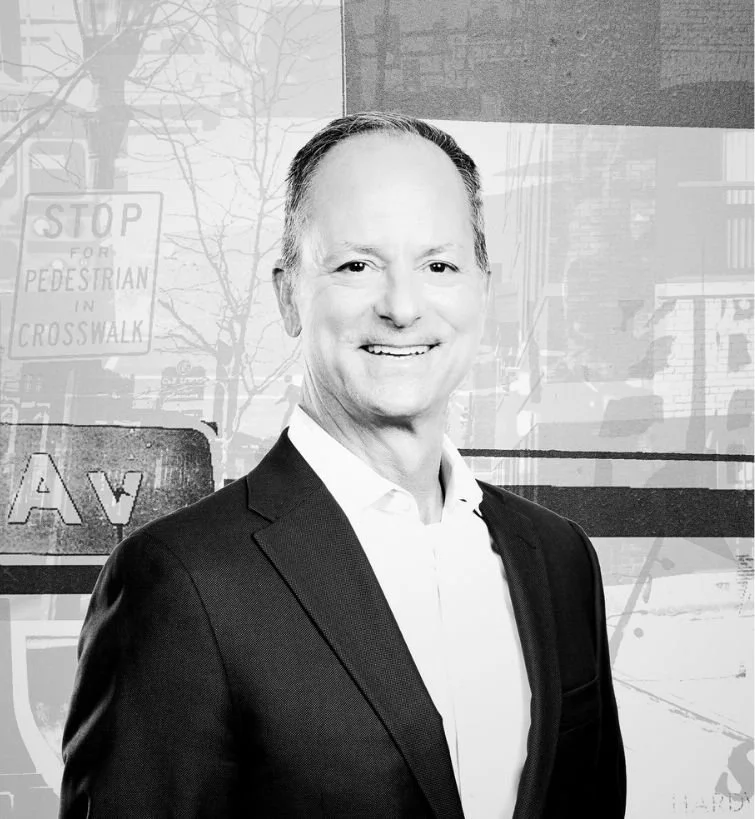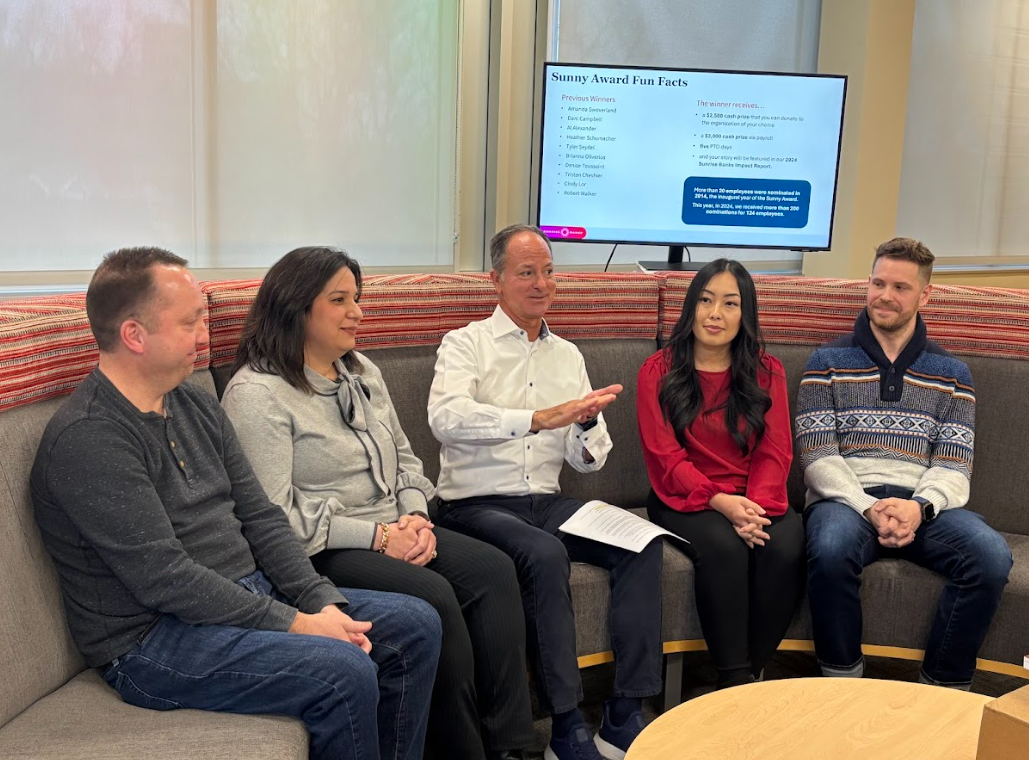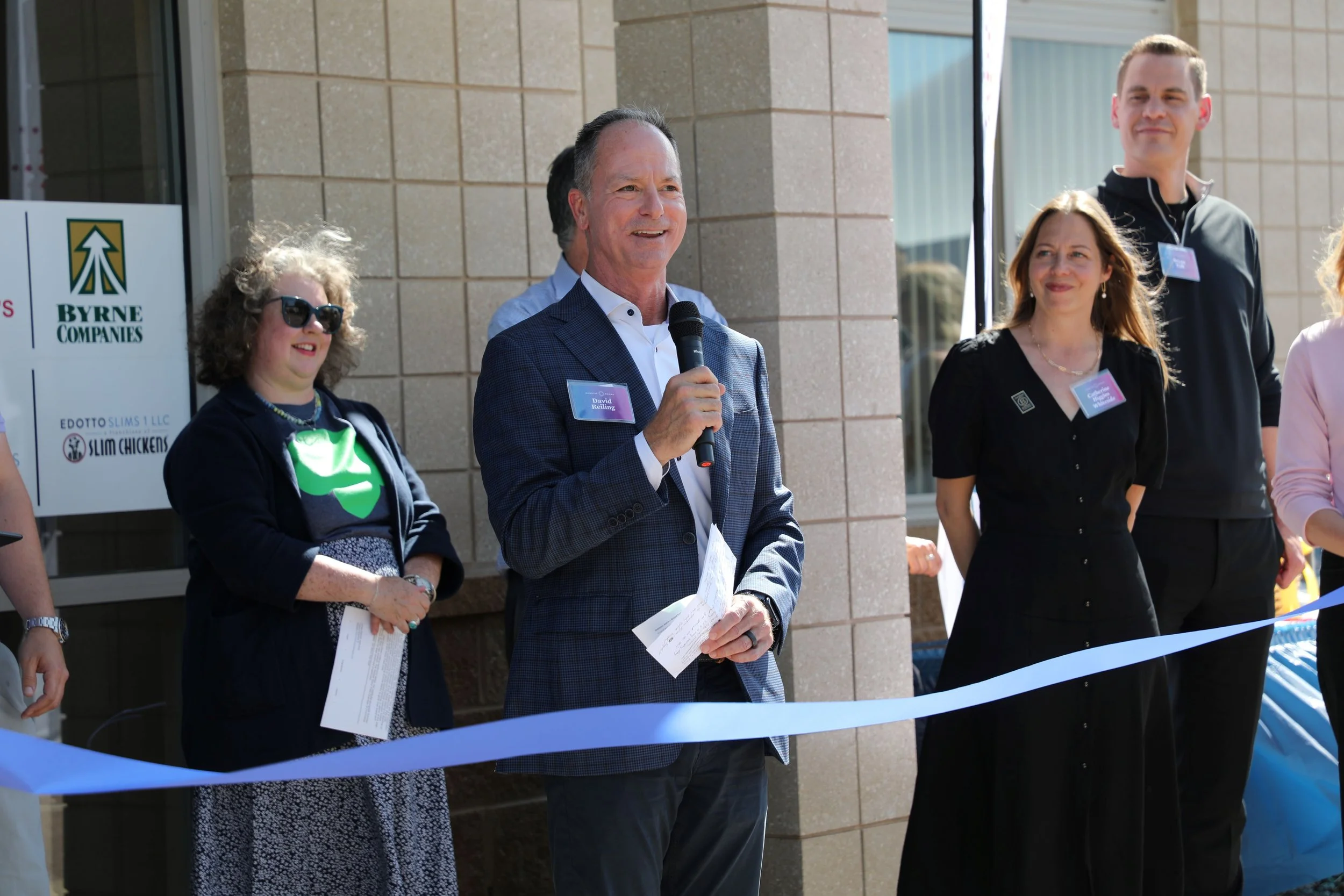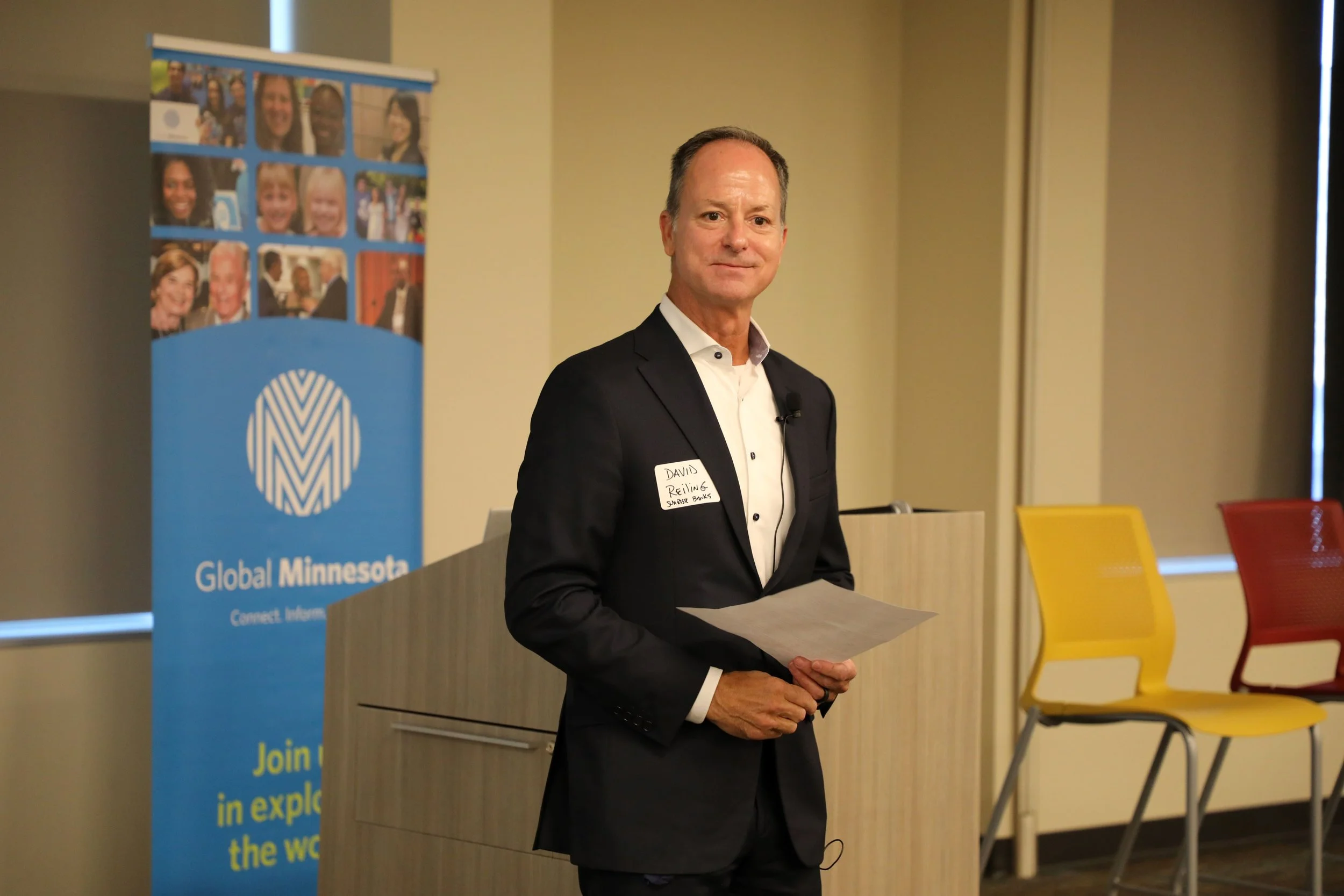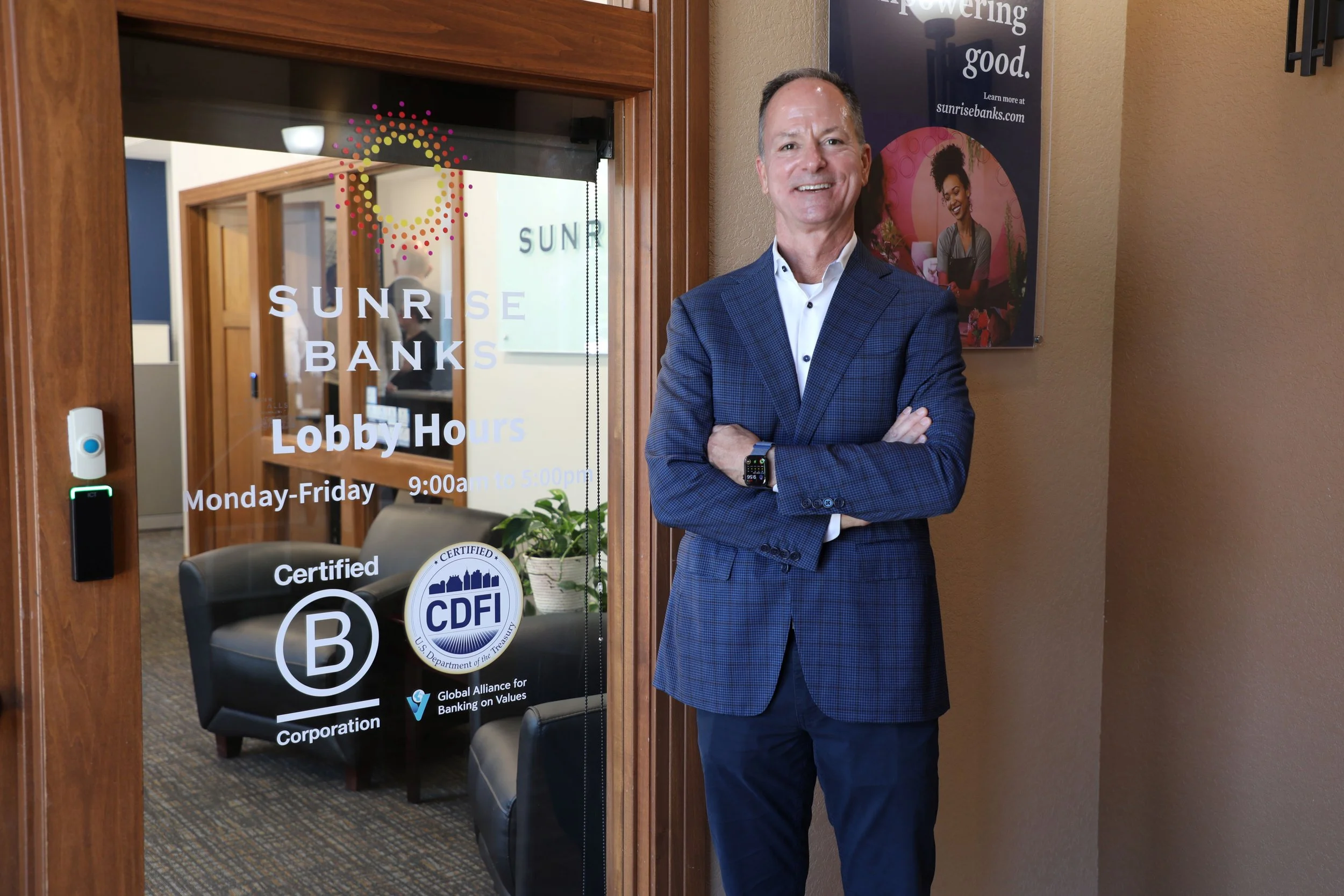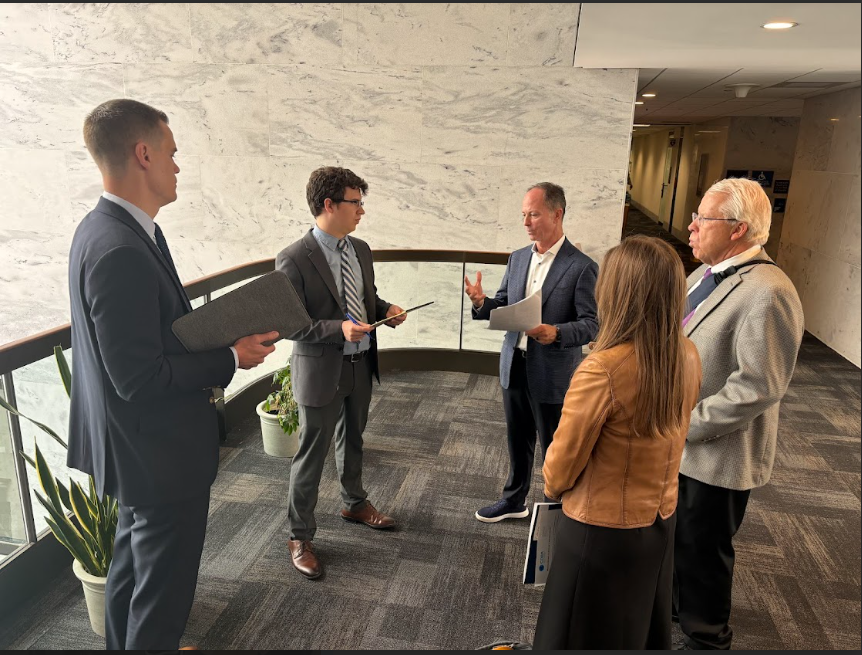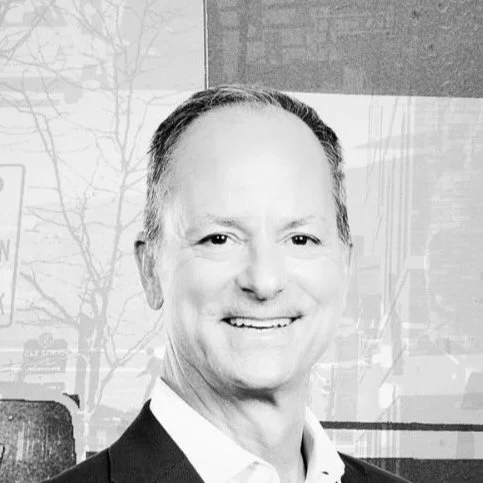David Reiling On Values-Based Banking Driving Global Social Inclusion And Community Development
David Reiling is the President and CEO of Sunrise Banks, a mission-driven, values-based bank with locations in Minneapolis/St. Paul, Minnesota and Sioux Falls, South Dakota.
David has worked in the community development banking industry for more than 25 years. He is a social entrepreneur and innovator who strives to forge meaningful partnerships, drive sustainable economic growth and create financial empowerment for all.
David is the current chair of the Global Alliance for Banking on Values (GABV), a network of more than 70 banks around the world (including Sunrise Banks) that are using finance to deliver sustainable economic, social, and environmental development.
David has served on various boards, including the Community Development Bankers Association, Entrepreneur’s Organisation of Minnesota and the Consumer Financial Protection Bureau’s Community Bank Advisory Board. David has been honored for his leadership by numerous publications and organisations, including the Minneapolis-St. Paul Business Journal, Real Leaders, Ernst & Young and Trust Across America.
David discusses the transformative potential of values-based banking and community-focused finance to reduce inequality, and strategic partnerships between progressive financial institutions scaling sustainable social, environmental, and economic impact.
Highlights from the interview (listen to the podcast for full details)
[Indio Myles] - To start off, can you please share a bit about your background and what led you to working in the world of social entrepreneurship and values-based banking?
[David Reiling] - It's an odd journey to get to where I am today, but I suppose destiny is what it is. I have to tell you that I was a teller one summer in a bank, and I loved being a teller. It was just so much fun, and it just so happened that the bank I was in that summer got robbed twice, once to the left of me and once to the right of me! I just found it so exciting; there were people, money, and robberies going on.
I had spent pretty much every other summer before that working for my uncle in the construction business, so maybe it was just that I liked the air conditioning. But the fact was, I thought the whole scenario around the intersection of money, people and society was just fascinating.
During my university years at the University of San Diego, I did some volunteer work building homes in Tijuana, Mexico. Having grown up in the construction business, building a home was second nature to me.
That particular experience hit me, and realised I had a skill and could make a significant impact on someone’s life. It was a little family of a mum and two kids. This was one of those moments when I thought, “If there’s a way I can have this feeling of meaning and purpose while making a living, that’s what I’ve got to discover.” That was my entry point into the field of social entrepreneurship.
It just so happened I also started a company while I was at university. I ended up selling it shortly after graduating and thenI went to work as a trainee for a bank in Los Angeles, California, probably the bank robbery capital of the world! Seemingly, bank robberies and I are closely related!
I worked in South Central Los Angeles, which at the time was embroiled in gang conflicts between the Bloods and the Crips over drug territory. It was during the Rodney King riots; the city was on fire, there were earthquakes, and it was just another incredibly dynamic environment to be banking. Again, I thought it was super exciting.
All this said, I later had an opportunity to actually purchase a bank back in St. Paul, Minnesota, where I grew up. The bank was about to fail. My father called me and said, “You should take a look at this bank if you get a chance. It’s really small, in terrible condition, but the price is generally possible.” To this day, I own that bank, and my father is a minority shareholder.
As the CEO of Sunrise Banks, can you please share a bit more about this organisation, why it's mission-driven, and how it's delivering sustainable development in underserved communities.
It all really began at that moment of buying the bank. The bank I purchased was in really poor condition. It was very much a turnaround situation, but the community it served was an immigrant community in the United States. At that time, the immigrant population was largely Hmong—Lao, Southeast Asian.
It became very clear from the outset the only way this bank was going to succeed was if the Hmong people succeeded. There are numerous studies on shared value and similar concepts, but in this case, it was absolutely true. Their success was my success, and their failure was my failure.
It was in everyone’s best interest to get them integrated into the U.S. financial system, to support their prosperity, home ownership, and broader economic journey. That was the foundation for innovation, so I began figuring out every possible way to get guarantees or hedge risks so I could lend to the Hmong community, enabling them to purchase assets, build wealth, and establish credit histories.
The goal was not just to grow personal or economic wealth, but also to strengthen the social fabric of a community that had long struggled with high police call-outs and incidents of crime. As jobs were created and employment rose, calls to the police went down. Everything worked hand in hand to improve the fabric of society. As we progressed, we began to break new ground in terms of innovation.
This journey led us to a certification with the U.S. Treasury, a designation known as a Community Development Financial Institution (CDFI). To be certified as a CDFI, at least 60% of your loans each year must go to low- and moderate-income people or places.
We’ve now been a CDFI for over 24 years. Every single year, the majority of our lending has gone to people or communities with lesser means and lower incomes. That has become our specialty, and that is essentially what we do from a lending perspective.
That was our first move into a more formalised program focused on social impact. I’d say it was around 2009, when we became a B Corp, that we began to concentrate more intensely on sustainability.
Specifically, we wanted to understand how we could improve the ecological conditions of the urban environments we serve, particularly for low-income communities. That was the genesis of what has now become Sunrise Banks as it exists today, and how we deepened our commitment to both the social and environmental components of our mission.
As the Chair of the Global Alliance for Banking on Values, could you share what global trends you're observing in values-based finance and how other member banks are driving impact?
Let me ground my answer in what I just shared.
One of the things I discovered over time is that I’m more of an entrepreneur than a traditional banker, and that entrepreneurial drive really stems from a thirst for impact. While our early work was quite focused around the local community near the bank branch, the next step in our evolution as a CDFI and B Corp bank was to scale that impact.
We began exploring more FinTech, digital banking, and payments. The aim was to bring in more deposits to grow the bank, and then use those deposits to make loans to low-income individuals. That shift from being a local or regional bank to becoming a national one was enabled by leveraging technology and strategic partnerships.
That naturally led me to ask: “Why stop at the United States? Why not engage with banks globally that are also focused on social and environmental impact?” This is what brought us into the Global Alliance for Banking on Values (GABV).
Within the GABV, there are some truly fascinating banks and stories. For example, there's Brac Bank in Bangladesh and the Banca Etica in Italy. We recently had our annual meeting in Kampala, Uganda. This was our first full meeting on the African continent, and before it, we also met with the Central Bank of Ethiopia.
Ethiopia is at a critical juncture as it begins to open its banking system to foreign investment. We met with the country’s banks and the head of the central bank to discuss the role that values-based banking could play in Ethiopia's future.
To put things into perspective: in a country of 120 million people, only around 300,000 to 500,000 currently have access to loans.
Financial inclusion isn’t just about growing banks for the sake of growth. It’s about including everyone. That inclusion doesn't just support bank sustainability, it also drives GDP growth and broader economic development for the country.
It was clear that the head of the Central Bank of Ethiopia deeply understood the importance of financial inclusion. Given Ethiopia sits almost directly on the equator, it has the capacity to grow virtually anything.
Sustainable development emerged as a key priority, so the ecological component (ensuring growth is achieved sustainably over the long term) resonated strongly, not just with the head of the central bank but also with the country’s financial institutions.
There’s significant momentum in Ethiopia right now, and if we’re looking at global trends, it serves as a compelling example. Across many countries, whether facing social or ecological challenges, there’s growing interest in banks becoming members of the Global Alliance for Banking on Values (GABV). The alliance now includes over 70 banks across 45 countries.
The ability to bring all these institutions together to share best practices and explore a variety of business models from traditional banks to ones that evolved out of microfinance is incredibly powerful. It allows members to see how digital applications are being used to reach business, consumer, and rural customers alike.
When you consider climate change, it’s clear we’re facing a global problem that demands global solutions. That’s why connectivity and collaboration through platforms like the GABV are so essential.
At the end of the day, one of the most powerful functions of a bank is determining where capital flows. If capital flows toward fossil fuels, fossil fuels will continue to be developed. But if it flows toward solar and renewable energy, those industries will grow instead. Banks play a pivotal role in directing investment and can be powerful levers for positive social and environmental impact.
Do you have any recommendations for banks or financial institutions trying to embed social and environmental impact into their operations?
If you're based in the United States, I'd recommend starting with the Community Development Bankers Association. It’s the primary trade group for CDFI-certified banks and provides excellent resources and support.
Globally, the Global Alliance for Banking on Values (GABV) is a fantastic place to begin. Even just visiting the website, engaging with the community, and exploring the diverse business models from across the world can offer a wealth of inspiration.
The alliance includes a wide variety of private, public, and cooperative financial institutions, and there’s model or entry point for almost any bank that’s interested in starting this journey.
Many traditional banks are primarily profit-driven, but within those institutions, there are often people who are passionate about driving sustainability or social impact. For those individuals, engaging with communities like the GABV can be the first step toward becoming intrapreneurs—catalysts for internal change.
By introducing impact metrics and advocating for purposeful operations, they can help guide their organisations toward more values-based banking.
Importantly, GABV membership prioritises authenticity. They look for institutions where impact is not just a PR exercise but a core part of the organisation’s identity, where mission and purpose drive operations from the inside out.
This is key to combating the greenwashing that unfortunately still persists in some corners of the industry. The GABV is, in my opinion, a powerful platform to help banks start their journey toward becoming truly mission-driven.
You've clearly shown a strong interest in forging partnerships and inspiring collaboration among organisations working toward similar goals. What have you learned about building trust and relationships between impact-led organisations to create and scale systems change?
It might sound quite simple, but it all comes down to values. Whether you're partnering with another bank in an alliance or working with a FinTech to scale, beginning with values alignment is absolutely foundational. That’s the bedrock on which a successful, lasting partnership is built.
What I often ask myself is: “Do we—both Sunrise and the potential partner—want to be the hero to the same group of people?” If your shared focus is on truly making an impact for a particular community, and both your passion and capabilities are aligned to serve that group, that’s a strong signal.
Let me give you a concrete example. We have a phenomenal partnership with a FinTech company called Self. At Sunrise, through our branch network, we might complete around 300 to 400 credit-builder loans per year, and these are very face-to-face and labour-intensive. Through our digital partnership with Self, we’re now doing around 275,000 to 300,000 credit-builder loans annually across the U.S.
While the scale of impact is dramatically greater the goal remains the same, to help people build their credit history. With improved credit, people can access life-changing benefits through more affordable credit options, secure housing, and better insurance rates
Partnerships only thrive when they're rooted in shared values. If you’re both striving to serve the same community with integrity and purpose, that’s where truly transformative and enduring partnerships are made.
What advice would you give to someone looking to innovate and build impact within a traditional industry like banking?
I’ve got a lot of stories in this space, but the best advice I can give from a holistic standpoint is to know thyself. Understand what truly drives your passion. That space where your energy is most focused and alive is exactly where you’re likely to have the greatest impact.
It’s okay to question yourself. When I was first developing the bank, the idea of “business for good” wasn’t particularly popular. I didn’t really know what I was doing, and I didn’t know where my community was. I was surrounded by bankers, but they didn’t feel like my tribe.
Then I attended an event held by the Social Venture Network, and it just so happened that Jerry from Ben & Jerry’s was there. I knew in my gut that if anyone understood social enterprise, it would be him. Ben & Jerry’s were the beacon of what business for good looked like at the time.
I worked up the courage to talk to him and shared the story of the bank. He gave me a simple but powerful piece of advice: “Do business with people who believe in what you believe. There are plenty of people who do.” That moment stuck with me. Sometimes, you just need to find your community, the people who think like you and are striving for similar kinds of change. They’ll help inspire you, give you courage, and push you to keep innovating within your sector.
Know yourself, but also find your tribe and community. Whether it’s local or global, in-person or online, there are many places to connect with people who share your purpose and values.
What inspiring projects or initiatives have you come across recently creating a positive change?
We’re currently working on a project with the US Treasury that focuses on people in the United States who do not have bank accounts. That unbanked population totals a little over four million people.
We’re really excited to be part of this initiative. Alongside the Treasury and some of our digital partners, we’re engaging these individuals through a fully digital approach to bring them into the financial system. This digital engagement will not only help us reach people more efficiently but also provide valuable data that we can use to innovate further.
It’s a project that will directly impact the growth of Sunrise Banks, but even more importantly, it will teach us a lot. It’s very much a data-driven initiative, and though I haven’t mentioned AI once in this conversation, I think this is an area where AI and analytics will play a key role in shaping outcomes.
There’s a lot of good that can come from this project, and we’re energised by the opportunity to make a meaningful difference in the lives of over four million people.
To finish off, are there any books or resources that you would recommend for our audience to explore?
The best book on money–and funnily enough I was just talking about this with someone on a plane the other day–is The Psychology of Money by Morgan Housel. It’s well written and provides a clear, accessible way for people to think about their financial health. It helps ease some of the anxieties people often have around money.
I give it to my kids. I give it to my kids’ friends. I’ve got stacks of copies. I just think it’s a great foundational read. While it’s not necessarily values-based or mission-driven, it does touch on how money impacts our behaviours and choices.
It really starts from the idea that understanding your relationship with money can help you build a healthier mindset—one that aligns with your broader mission and purpose in life. So yes, The Psychology of Money is a great book.

